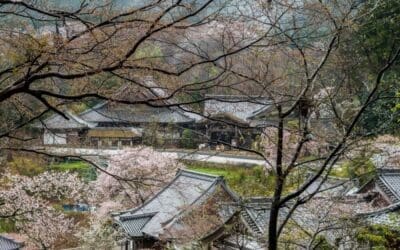Why More People Are Choosing Long Commutes in Japan
In modern Japan, people often assume that long commutes in Japan are a punishment. Crowded trains, packed timetables, and late returns home define the narrative. But a growing number of people are flipping the script.
By living outside Tokyo suburbs, they’re not opting out. They’re choosing clarity, affordability, and lifestyle. These longer routes aren’t wasted time — they’re a different kind of gain. For those pursuing balance and breathing room, the countryside is calling.
Cost Savings and Space You Can Feel
A traditional kominka with a garden in Gunma or Tochigi can cost less than a monthly Shinjuku apartment deposit. Property taxes are lower, utilities are cheaper, and you get space to live — not just survive.
Many buyers who opt for long commutes in Japan are working hybrid jobs. With only one or two days in the office, they’re free to live where quality of life trumps convenience.
Commutes as Mental Boundaries
The benefit isn’t just financial. Long-distance commutes give your brain time to breathe. City workers often struggle to “switch off” when the office ends and home life begins. But long commutes in Japan provide a natural break.
Sitting on a quiet express train through rural Chiba or watching mountains pass from your car window in Yamanashi can reset your mood. You’re no longer sprinting between obligations. You’re shifting environments with intention.
In many cases, people use this time for language learning, journaling, or simply listening to silence — something that’s nearly extinct in the capital.
Real Relationships Beyond the Beltline
In dense urban neighborhoods, it’s possible to live for years without knowing the names of your neighbors. Everything is fast, isolated, and transactional. Outside Tokyo suburbs, it’s a different pace.
Towns like Fujino, Iiyama, or Ureshino still have matsuri worth attending. You’ll see neighbors in the market, not just on the train. Community bulletin boards advertise concerts and soba workshops. You wave at people and they wave back.
Over time, this builds real belonging. These towns still hold what so many urban centers have lost: trust and continuity. Japanese countryside life gives you a reason to stay present.
Tradeoffs That Aren’t Really Losses
The number one concern about long commutes in Japan is time. But time spent squeezed against strangers on a subway is not the same as time alone in a seat with a book and a view.
The other fear is losing convenience. And yes, rural towns don’t have every chain restaurant or 24-hour store. But they do offer clear skies, quiet nights, local produce, and the ability to hear yourself think.
You’re not giving something up. You’re making room for something better.
5 Benefits of Long Rural Commutes in Japan
- Affordable housing: Rural homes cost far less than city flats
- Mental clarity: Time to unwind, think, and transition
- Community living: Stronger ties in small towns
- Healthier lifestyle: Fresh air, local food, more movement
- Hybrid advantage: Balance remote days with high-value work days
A Better Life Just Far Enough Away
Long commutes in Japan aren’t just about transportation. They’re about making a conscious choice to live differently. When you step outside Tokyo suburbs, you don’t lose access to work. You gain access to meaning.
For many, this shift marks a turning point. Less pressure, more presence. Less cost, more comfort. What looks like distance on a map turns into closeness where it counts — in your head, your heart, and your home.
Japanese countryside life still has space for you. All it takes is one longer train ride to get there.



